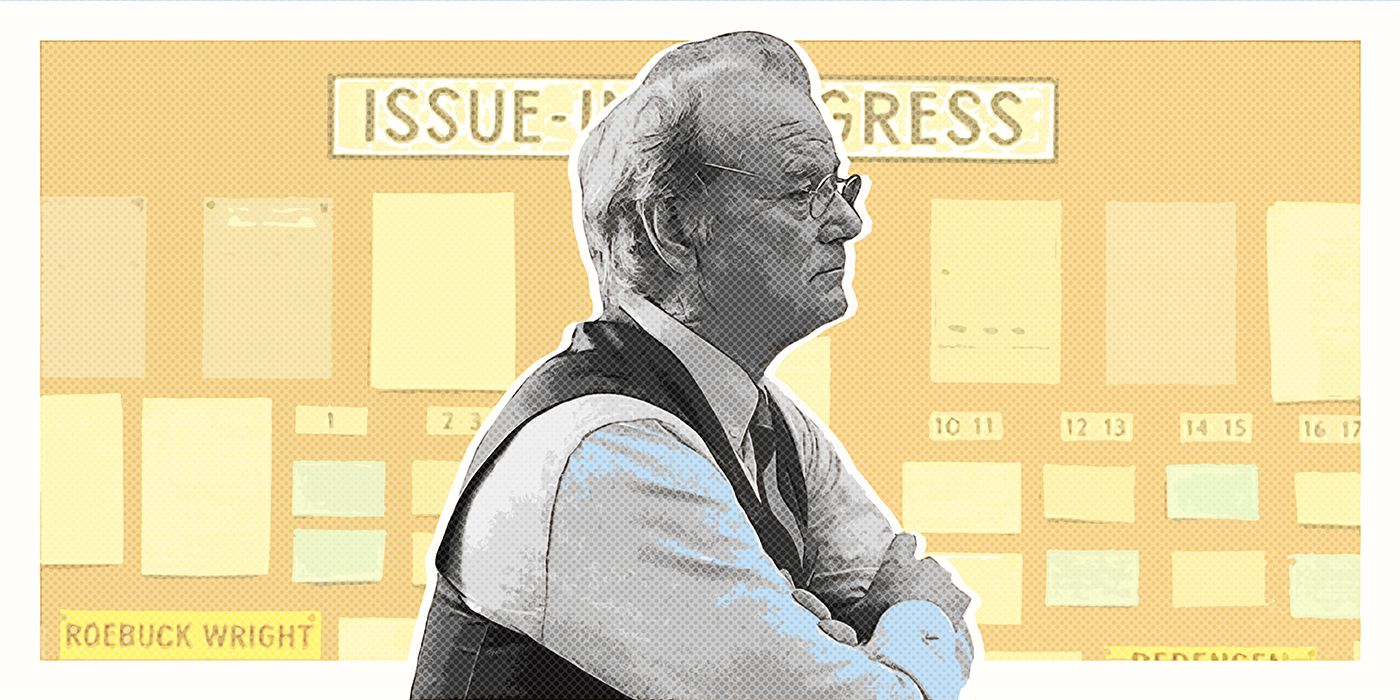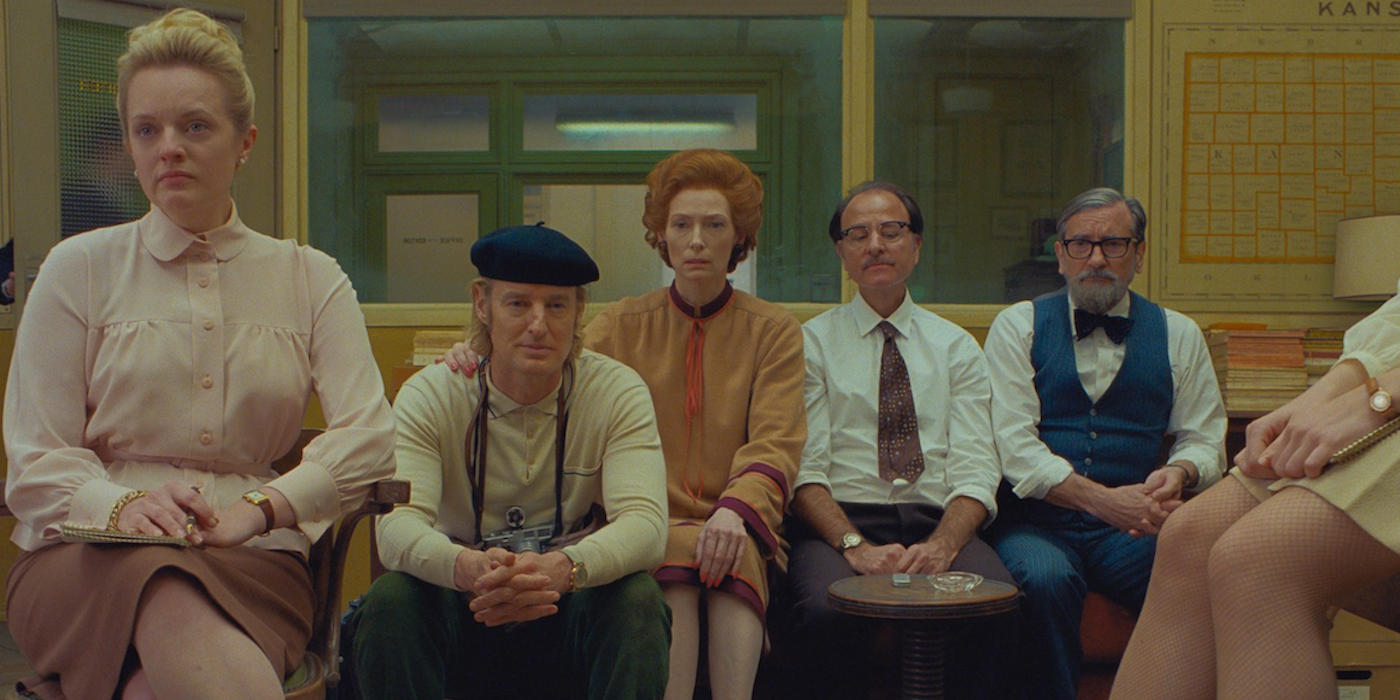Stories about journalists make for terrific drama. In a narrative setting, investigative journalists play the same part in their stories as private eyes do in mysteries. Uncovering clues, chasing leads, and eventually exposing the truth. However, with journalists, there is the added weight, usually, of bringing down powerful people who do not deserve their power, making them crusaders of justice more than clever minds putting together a puzzle. When executed properly, films about journalists garner a plethora of critical and awards attention, from Bob Woodward and Carl Bernstein (Robert Redford and Dustin Hoffman, respectively) breaking the Watergate scandal in All the President's Men to the Boston Globe's Spotlight team exposing the ring of pedophile priests within the Catholic Church in Spotlight. Particularly when focused on the work of real-life journalists, each of these films make an excellent case for why the investigative journalist provides a valuable service to society, able to bring forward matters of global importance with extreme implications on how people live their day-to-day lives.
The thing is, judging what is and is not great journalism on how seismic the information reported does not entirely do the profession justice. Yes, breaking these gigantic stories is important, but journalists around the world cover a variety of different topics. Stories about art or food may not shake up the world order, but they can provide the reader with emotional and intellectual insight into facets of the world they may not have considered or just simply find interesting. What also gets lost in these grand investigation stories is the importance of how the information being reported is written, finding a way to make the story engaging for the reader so the important information can actually stick. The French Dispatch, the latest film from writer/director Wes Anderson, gives these kinds of journalists their own spotlights and shows that the voice of the journalist is just as important as the subject of their writing.
The French Dispatch is a collection of four articles published in the fictional eponymous section of the Liberty, Kansas Evening Sun, run by editor Arthur Howitzer Jr. (Bill Murray). First is a piece by Herbsaint Sazerac (Owen Wilson) about the fantastically named town Ennui-sur-Blasé shown through the eyes of its seedier individuals. Second comes a tale from J.K.L. Berensen (Tilda Swinton) about an incarcerated modern artist (Benicio Del Toro) and his dealings with his fellow inmate and manager (Adrien Brody) and his muse and prison guard (Léa Seydoux). Next is an on-the-ground report from Lucinda Krementz (Frances McDormand) of a student uprising, including her bias-breaking tryst with one of the rebellion's leaders (Timothée Chalamet). Finally, Roebuck Wright (Jeffrey Wright) sets out to profile a renowned police chef (Stephen Park) and finds himself entrenched in a story to rescue the kidnapped son of the police commissioner (Mathieu Amalric).
Each of these four stories, while also being fictional, do not cover topics of mass cover-ups or extreme corruption. Instead, all of these pieces are human-interest stories, where the people and emotions of the circumstance are the story. Owen Wilson's Sazerac, inspired by New Yorker writer Joseph Mitchell, needs to immerse himself in the world of Ennui-de-Blasé's sex workers and backstreets to best get a sense of how to capture the essence of the town. After all, the people of a particular place are what give it the life, culture, and feeling to make the place its own. Writing a short piece about this town for the readers back in the United States might seem trivial, as most of the people who read it will most likely never travel across the Atlantic to visit this particular town. However, documenting and showing people a place they will never visit how other parts of the world operate could have an affect on how a particular person decides to live their life. For example, reading about an average day for a sex worker may change a person's mind on how they see sex work as an occupation. Having a writer tell a small story in a unique way brings attention to little things you never knew you wanted or needed to know about.
All of the segments in The French Dispatch are filled with copious amounts of voiceover as if the four authors were reading aloud their articles. Rarely in films about journalists do we ever see or hear the finished product of their investigations. The drama comes from the paper chase or a time crunch, so by the time the article is complete, the movie ends, cutting to the credits. Hearing the distinct voices of the authors read out exactly how the stories would reach the public at large makes you realize how inextricably tied the writer is from their work. Jeffrey Wright's Roebuck Wright, inspired by legendary writer James Baldwin, best exemplifies this with his overly eloquent, flowery language said with a smooth, calm demeanor. The words flow out of Wright with such ease that they activate other senses in your body, like being able to smell and taste the food made by the police chef. You can feel his sadness seeing Willem Dafoe's Albert sitting in a cell Wright himself sat in not too long beforehand.
Wes Anderson's film stands apart from the majority of journalist-centric movies not just because it covers less bombastic material, but also because it is a fiction film. Journalism films, while incredibly gripping, do often have a sense of patting themselves on the back for telling an "important" story, even though really it was the initial real-world story in a newspaper or magazine that was the important one. Films are often constructed as the most exciting period of a person's life, which when translated to journalists means their most important story. Obviously, Woodward and Bernstein exposing the wiretapping by the Nixon administration deserves its own telling, but this was not the only story those two writers worked on for their entire careers. Whether it be a profile on a particular person or just a random local news story, these guys wrote thousands of articles in their lives, and each one has the potential of sticking directly in the mind of a reader. Only rarely is a true life journalism movie about one of these kinds of stories, such as The End of the Tour by director James Ponsoldt about Rolling Stone writer David Lipsky (Jesse Eisenberg) profiling acclaimed author David Foster Wallace (Jason Segel).
The French Dispatch harkens back to a time when magazines like The New Yorker had the funds to keep writers like this on staff and produce these highly specific stories with great frequency. A subscriber to a magazine would receive each copy and read it from cover to cover, not knowing exactly what story was coming next. It is no secret that print media over the last few decades, first thanks to television and now the Internet, struggle to stay afloat, let alone keep a staff of decently paid writers to cover stories that don't have a flashy headline. Algorithms filter out the lighter side of journalism, making the stories that used to be discoveries undiscoverable. Of course, interest in these kinds of stories has not actually diminished. Just look at a figure like Anthony Bourdain, who adapted this kind of travelogue journalism for television and entertained millions everywhere. People like to learn about things like art, food, culture, and history, but finding a way to put these things in front of people's faces without hyperbole and panic will continue to prove near impossible as long as the current operating structures of search optimization and social media rule the day. The French Dispatch shows us seemingly minor stories can shed just as much insight into life as the world-dominating ones.


